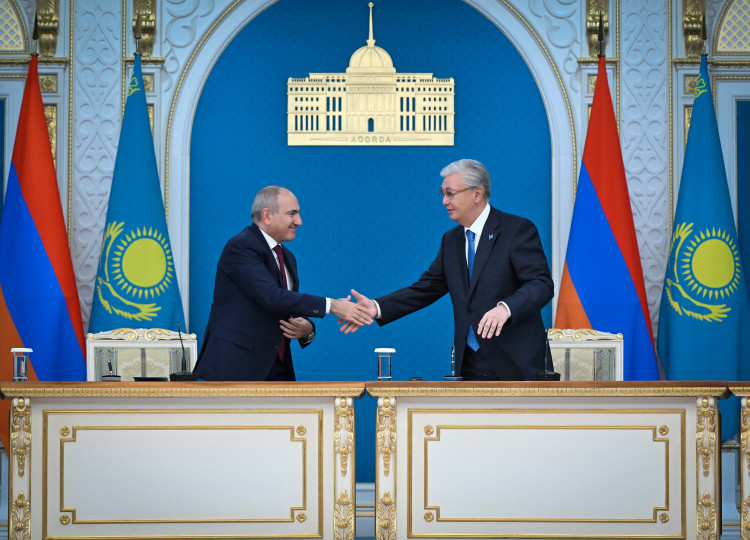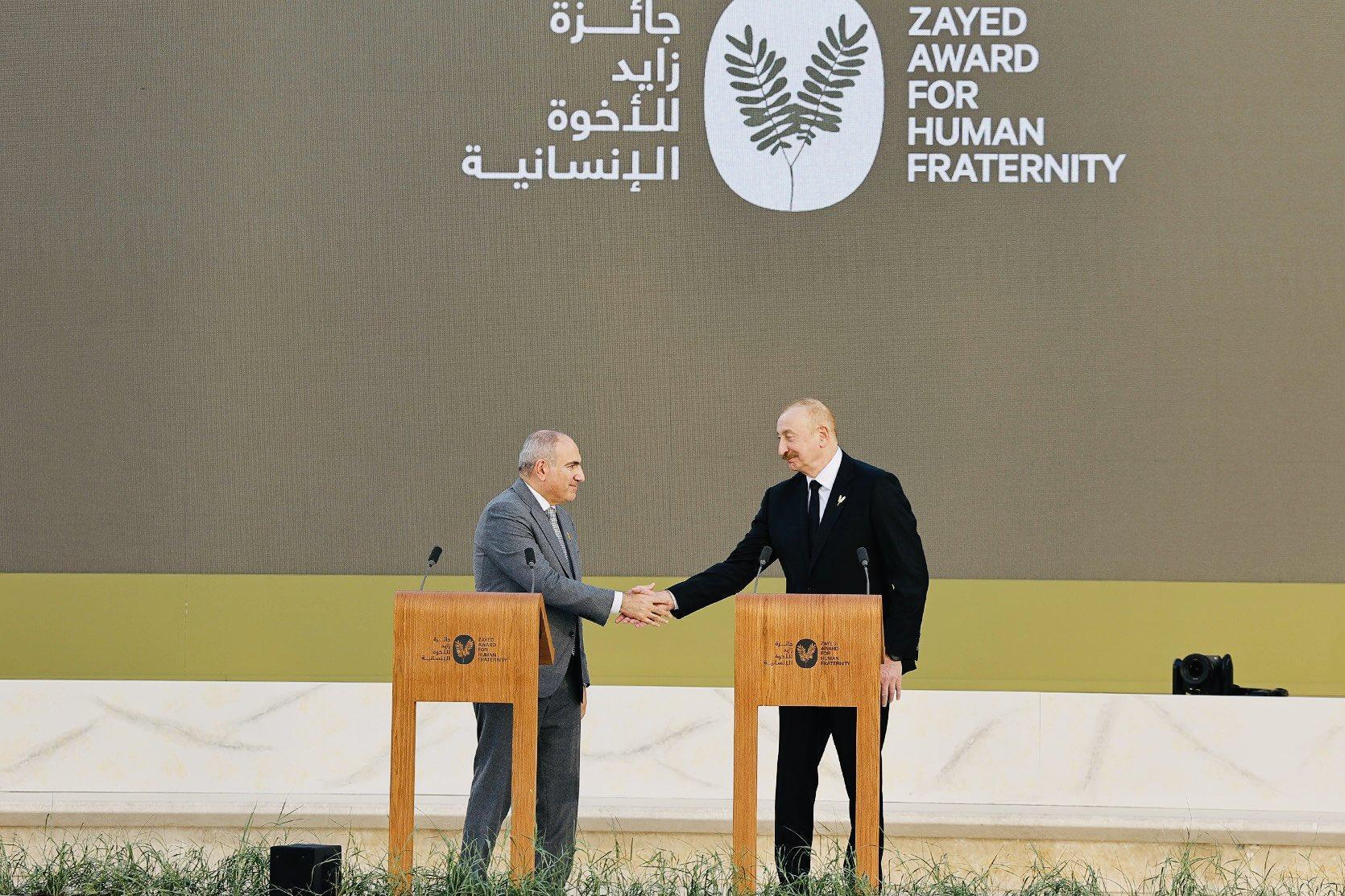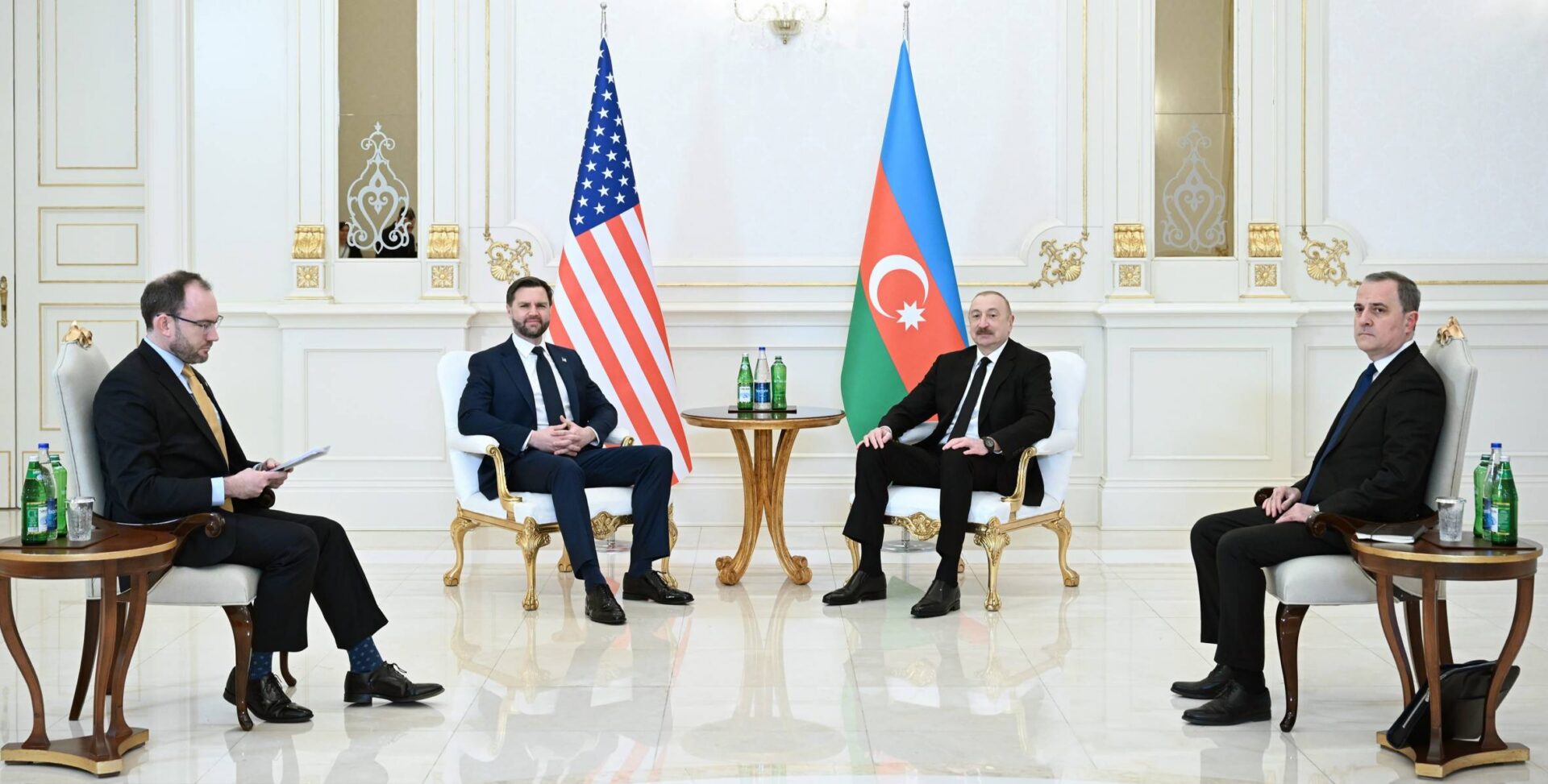
Georgia and Azerbaijan Expand Engagement With Middle East
Georgia and Azerbaijan Expand Engagement With Middle East
Executive Summary:
- The South Caucasus has grown increasingly close to the Middle East. One region that stands out is the Gulf Cooperation Council (GCC), which looks at the Caucasus as a transit and a land for investments.
- Tbilisi’s closer ties with the GCC present a valuable foreign tool to balance the existing Russian threat. For Azerbaijan, ties with the GCC similarly provide room for balancing between major regional actors.
- The growing ties with Georgia and Azerbaijan underscore the Gulf states’ strategic pivot toward Eurasia, driven by investments, trade opportunities, and connectivity projects that align with their long-term economic diversification goals.
On January 26, Georgian Prime Minister Irakli Kobakhidze visited the United Arab Emirates (UAE) for high-level meetings with the president, Sheikh Mohamed bin Zayed Al Nahyan, and state ministers (Civil.ge, January 26). The primary goal of the visit was to foster greater economic ties by increasing bilateral trade and UAE investments in Georgia. The two sides discussed the upcoming opening of the Tbilisi Dry Port, an investment carried out by the Abu Dhabi Ports Group (Imedi.ge, January 27).
The visit highlights the growing ties between the Gulf Cooperation Council (GCC)—a political and economic union consisting of Bahrain, Kuwait, Oman, Qatar, Saudi Arabia, and the UAE—and the South Caucasus, where Georgia and Azerbaijan have been a focus of investments from the wealthy Arab states. The attention the South Caucasus has garnered from the GCC is due to shifting geopolitics. The war in Ukraine shifted Eurasian connectivity as the north Eurasian route, which mostly traversed the Russian heartland to link the People’s Republic of China (PRC) with the European Union, is increasingly seen as less reliable (see EDM, January 28, February 4). The transit volume fell precipitously along this route in the first year of the war in Ukraine, serving as a powerful motivator for Brussels and Beijing to seek alternative routes. One of these routes is through the South Caucasus, but while a lot of attention has been paid to the PRC’s and the European Union’s moves to expand the corridor via Georgia and Azerbaijan, the GCC countries are no less important actors.
The GCC countries, particularly the UAE, have shown great interest in Georgia’s strategic infrastructure, including its ports and railways. For instance, the UAE’s Ras Al Khaimah Investment Authority purchased the Poti Black Sea port in Georgia in 2008 (Civil Georgia, December 8, 2008). More recently, AD Ports Group acquired a 60 percent share in a major dry port in Tbilisi (AD Ports Group, March 22, 2024). Both investments indicate the UAE’s expanding interest in tapping into the transit potential of the Middle Corridor.
As to other investments, Masdar Renewable Energy Company is constructing Georgia’s largest solar power plant in Gardabani, Georgia, aiming to diversify Georgia’s energy sources and reduce dependence on imports (United Arab Emirates Ministry of Foreign Affairs, December 27, 2023). In a January memorandum of cooperation, Emaar Properties, a major real estate development company in the UAE, pledged to invest $6 billion, which could become the largest investment in Georgia’s history (Gov.ge, January 26).
The UAE is Georgia’s largest Arab trade partner, accounting for 63 percent of Georgia’s trade with the Arab world. A comprehensive economic partnership agreement signed in October 2023 liberalized trade and came into force in 2024, enabling 97.5 percent of Georgian goods to enter the UAE duty-free (UAE Foreign Affairs Ministry, October 11, 2023; 1tv.ge, June 27, 2024; UAE Economic Ministry, accessed February 4). This is expected to contribute nearly $4 billion to the UAE’s gross domestic product by 2031 (Emirates News Agency-WAM, June 26, 2024).
On a diplomatic front, Georgia has strengthened relations with GCC states through embassies and cooperation councils. For instance, in early 2024, the Intergovernmental Coordination Council with Saudi Arabia aimed to enhance political and economic collaboration (Civil.ge, January 24).
Similar processes have developed in the relations between Azerbaijan and the GCC countries. The oil and gas sector has played a major role. The UAE’s Abu Dhabi National Oil Company acquired a 30 percent stake in Azerbaijan’s Absheron gas field in the Caspian Sea (Intellinews, August 7, 2023). There is an increasing trend, however, toward expanding cooperation in green energy. For instance, Saudi Arabia’s ACWA Power is investing $300 million in a wind power plant (President.az, January 31, 2022; Caspian News, January 16, 2022). Baku and Abu Dhabi have also invested in solar energy projects, such as the Garadagh Solar Power Plant, unveiled in October 2024 (Azernews, January 15). Moreover, a $1 billion joint venture was established between Abu Dhabi’s ADQ (Abu Dhabi Developmental Holding Company PSJC) and Azerbaijan Investment Holding (ADQ.ae, December 15, 2023).
Progress has also been made in digital infrastructure and connectivity between the UAE and Azerbaijan. Abu Dhabi and Baku signed several documents on enhancing digital infrastructure, focusing on developing data centers (UAE Investment Ministry, December 15, 2023). Azerbaijan is also seen as a link in the International North-South Transport Corridor (INSTC), offering the GCC states potential access to the Russian market (see EDM, October 16, 2020, January 10, 2024).
For both Georgia and Azerbaijan, closer ties with the GCC states present an opportunity to enhance their regional posture and fit into what might be called a multi-vector foreign policy. In the age of heightened competition and the rise of several major actors, the GCC is seen as one of the major geopolitical centers that projects influence across much of Eurasia, the Middle East, and, increasingly, the South Caucasus.
In light of Georgia’s troubled relations with Russia, Tbilisi’s closer ties with the GCC present a valuable foreign tool to balance the Russian threat. For Azerbaijan, ties with the GCC similarly provide room for balancing between major regional actors. As to the GCC itself, the growing ties with Georgia and Azerbaijan underscore the Gulf states’ strategic pivot toward Eurasia, driven by investments, trade opportunities, and connectivity projects that align with their long-term economic diversification goals.


